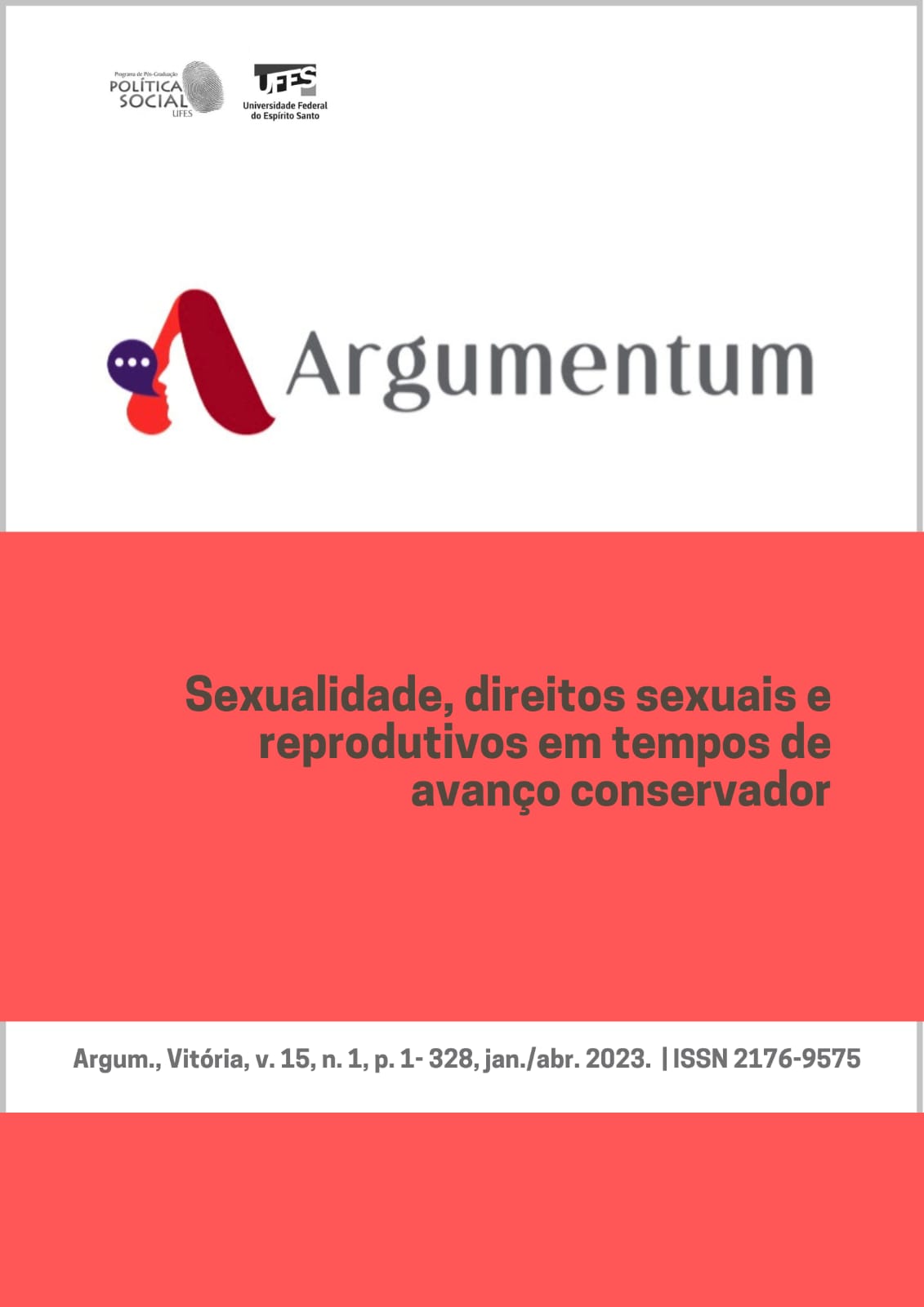Aborto Legal e Seguro para meninas brasileiras em tempos de barbárie: um diálogo com Debora Diniz
DOI:
https://doi.org/10.47456/argumentum.v15i1.40647Resumo
O texto de Debora Diniz intitulado: “A casa de uma menina: estupro, aborto e a pandemia de COVID-19 no Brasil” nos traz reflexões essenciais e sensíveis sobre o conhecido caso da menina de dez anos do Espírito Santo que engravidou vítima de um estupro de vulnerável (art. 217-A do Código Penal),[1] praticado por um parente dentro de casa e sua via-crúcis para ter acesso ao aborto legal e seguro. Em especial diante do conjunto de experiências terríveis que ela teve que passar até finalmente conseguir realizá-lo em um serviço localizado a mais de 1.480 km de sua casa. Isso garantiu a dignidade, o direito à vida e a um futuro, depois desse acesso ter-lhe sido negado no hospital universitário de seu estado sob a justificativa de “recusa consciente” pelos médicos.
[1] O crime de estupro de vulnerável, previsto no artigo 217-A do Código Penal prevê como crime: “Ter conjunção carnal ou praticar outro ato libidinoso com menor de 14 (catorze) anos”, ou seja, presume a violência nesses casos.
Publicado
Edição
Seção
Licença
Termo de Cessão de Direitos Autorais
Como condição para a submissão, os autores devem concordar com o Termo de Cessão de Direitos Autorais, marcando a caixa de seleção após a leitura das cláusulas.
O(s) autor(es) doravante designado(s) CEDENTE, por meio desta, cede e transfere, de forma gratuita, a propriedade dos direitos autorais relativos à revista Argumentum, do Programa de Pós-graduação em Política Social, Universidade Federal do Espírito Santo - Av. Fernando Ferrari, 514 - Goiabeiras 29075-910, Vitória (Brasil) doravante designada CESSIONÁRIA, nas condições descritas a seguir:
1. O CEDENTE declara que é (são) autor(es) e titular(es) da propriedade dos direitos autorais da OBRA submetida.
2. O CEDENTE declara que a OBRA não infringe direitos autorais e/ou outros direitos de propriedade de terceiros, que a divulgação de imagens (caso as mesmas existam) foi autorizada e que assume integral responsabilidade moral e/ou patrimonial, pelo seu conteúdo, perante terceiros.
3. O CEDENTE cede e transfere todos os direitos autorais relativos à OBRA à CESSIONÁRIA, especialmente os direitos de edição, de publicação, de tradução para outro idioma e de reprodução por qualquer processo ou técnica. A CESSIONÁRIA passa a ser proprietária exclusiva dos direitos referentes à OBRA, sendo vedada qualquer reprodução, total ou parcial, em qualquer outro meio de divulgação, impresso ou eletrônico, sem que haja prévia autorização escrita por parte da CESSIONÁRIA.
4. A cessão é gratuita e, portanto, não haverá qualquer tipo de remuneração pela utilização da OBRA pela CESSIONÁRIA.

